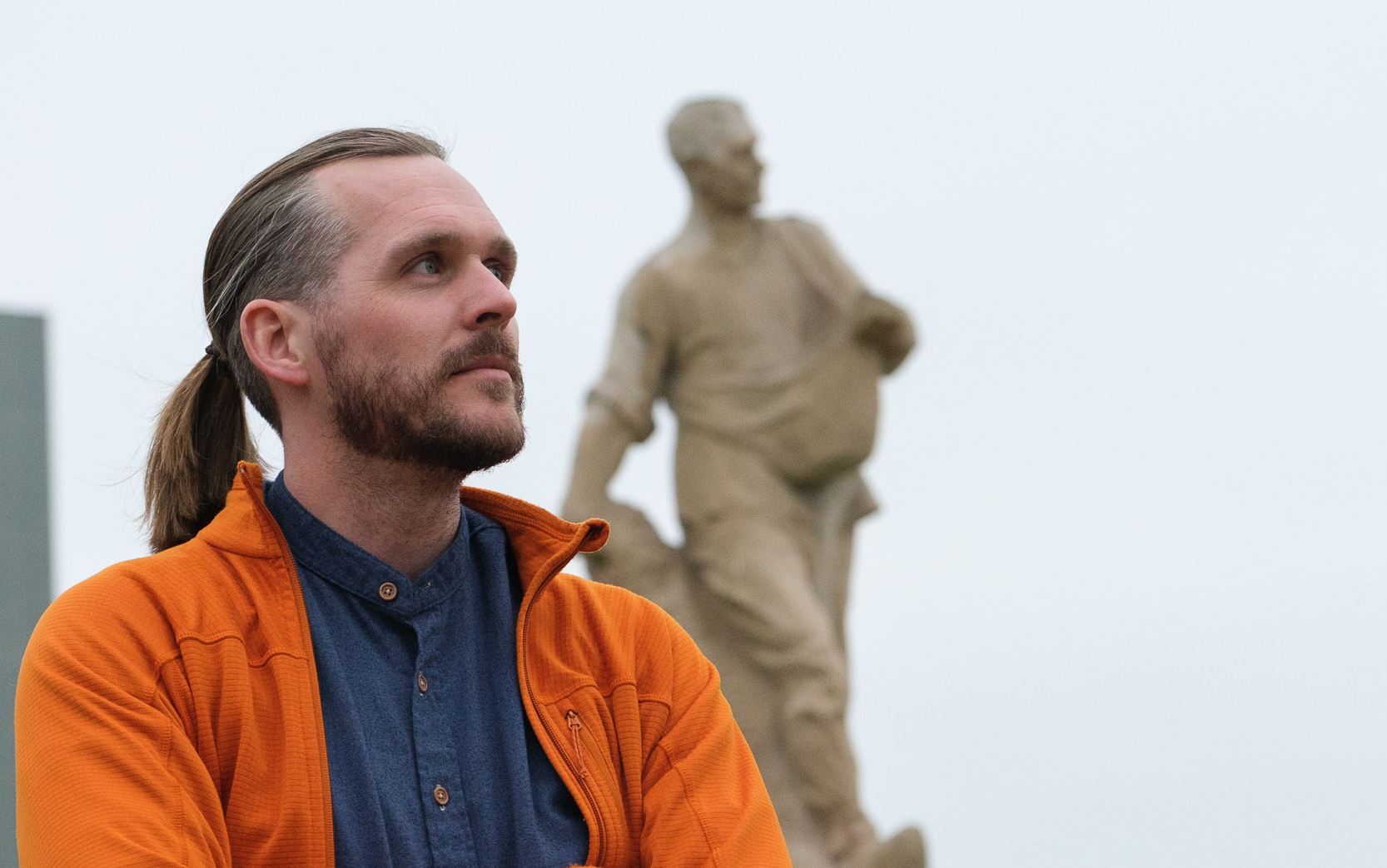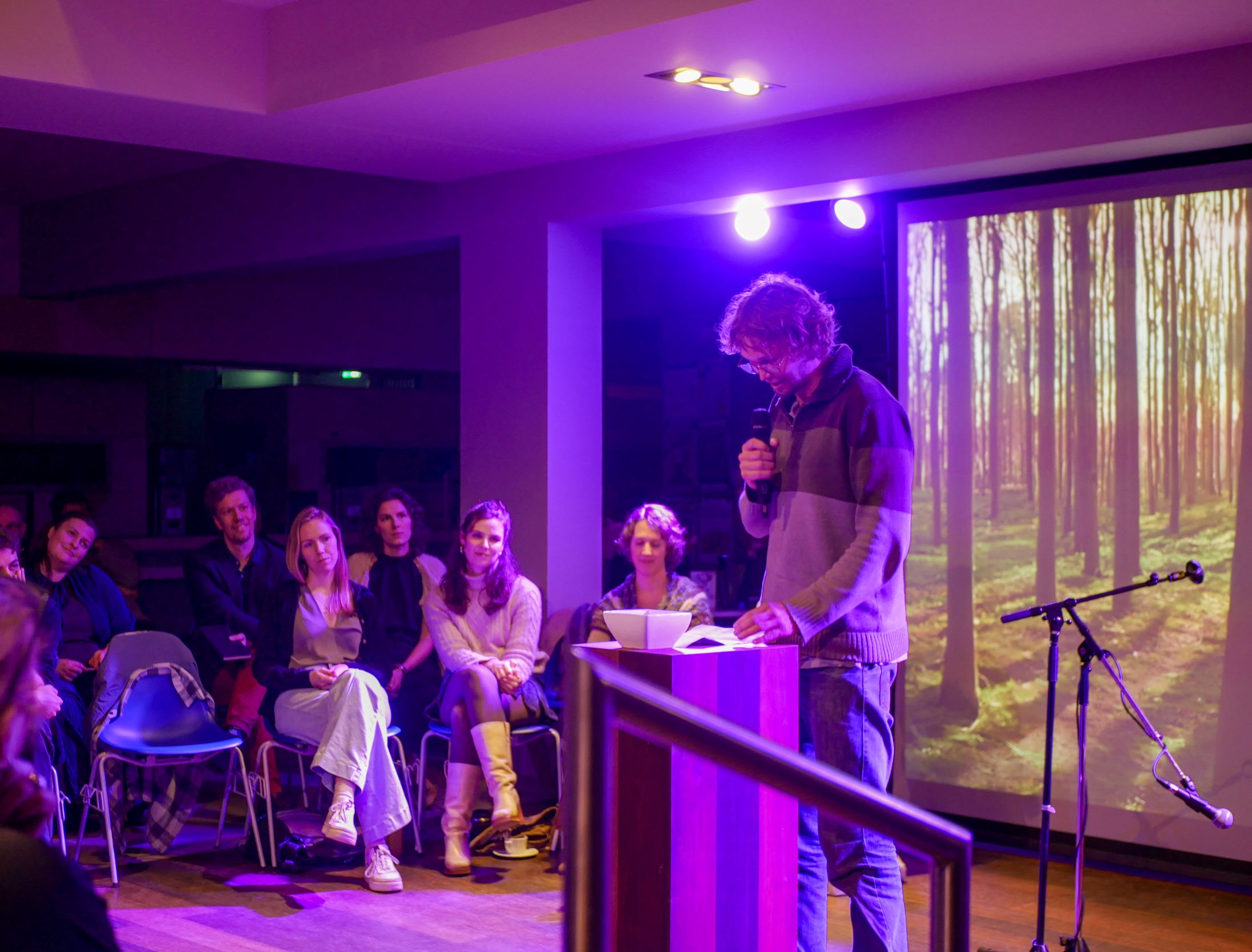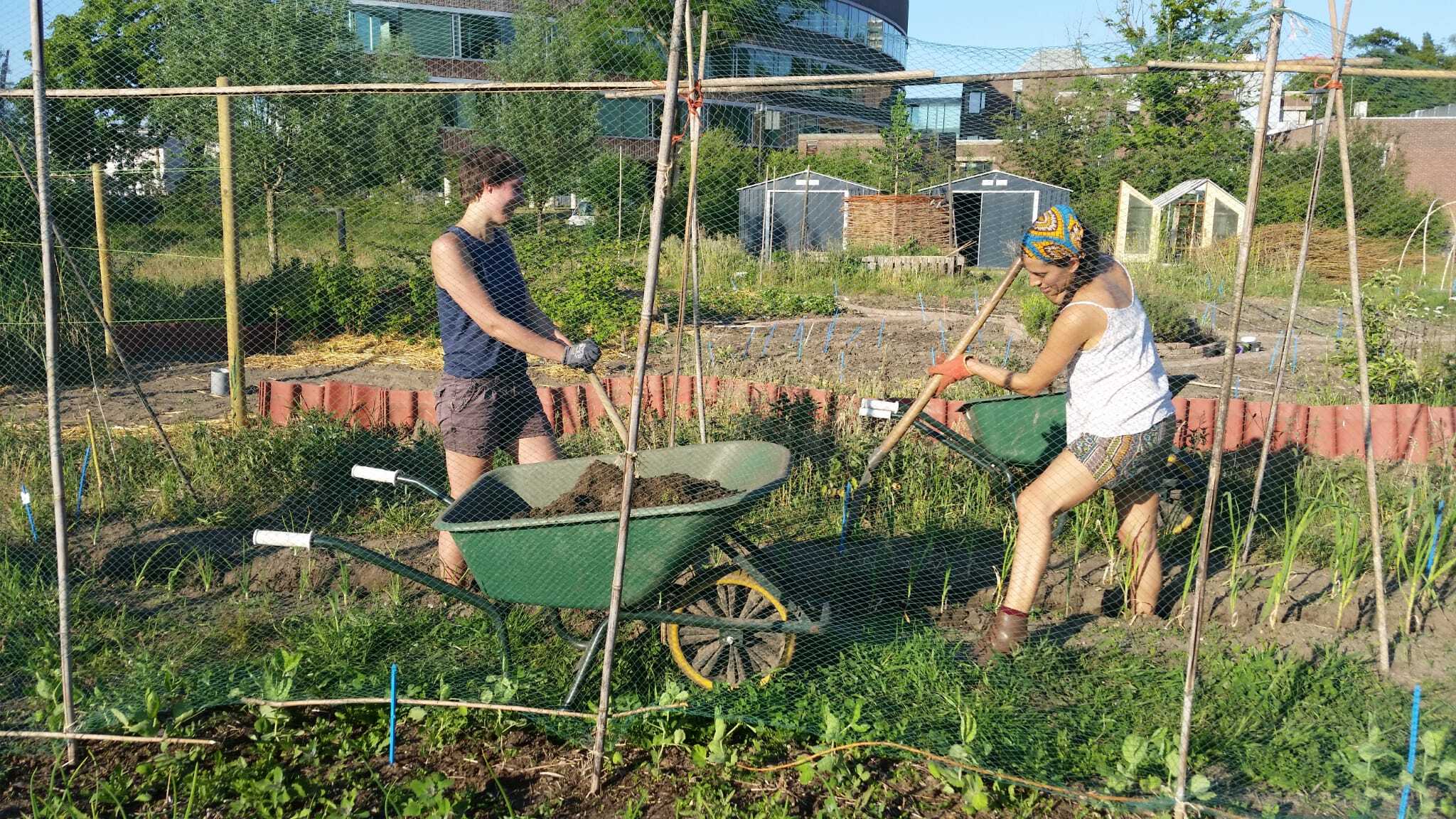Master’s student of Biology Bas Hovius has published a volume of poetry that he wrote during the darkest days of his life. For him, the poems were a way of expressing his depressed and suicidal thoughts, even though he didn’t show them to anyone at the time. He no longer feels depressed and lonely like he did then. He hopes his poems can be helpful, even if it’s just for one person.
‘I hated school, I didn’t believe in what I was doing there, and even less in what was to come after it: university, a job. And I was extremely worried about everything that was wrong in the world. Stress turned into panic and I slid further and further into a negative spiral. The negativity in my mind got so big that life seemed entirely pointless.
The suicidal thoughts started around my fifth year at secondary school. They got worse and worse. It became normal for me to feel dreadful all the time, to have sleepless nights, and to ruminate endlessly about what I’d done wrong and what I would do wrong in the future. I was insecure about everything: who I was, what I wanted, what I was capable of, what others thought of me, what was happening in the world – absolutely everything. It was exhausting to be dwelling on all that all the time.
I had that crushing feeling continuously, but it was invisible to other people: I didn’t talk to anyone about it. I thought: this is my problem, and I’ve got to solve it myself. I can’t burden anyone else with it, can I? And that feeling got stronger the deeper my depression got. I mean, how can you tell your parents you don’t want to live any longer?
I kept up a façade, kept smiling. No one realized I was having such a hard time. The lowest point came after I had started on my Bachelor’s. There was a girl I’d had a crush on for a long time. In my mind, she was the one who could solve it all. If only I could be with her, it would all come right. But it didn’t come right. I was broken. For me, she was like the key to the future and now that was out of reach. I went into a kind of survival mode for months. I did what I had to do to get the credits for my courses, but I didn’t sleep a wink anymore and I felt negative all the time. One evening in the October of my second year, I opened up to my parents and told them I didn’t want to go on living. That was very tough. I had struggled for so long to keep that terrible feeling to myself! I was annoyed with myself for bringing other people into it; I felt ashamed. Looking back on it now, it was a very good thing that I shared it then. But at the time, it felt like an admission of weakness, a failure. A sense of relief only came much later.
Coming out of it involved ups and downs: you can’t unlearn negative thinking just like that
My parents consulted the GP. While I was waiting to start therapy, I began to talk a bit with a counsellor at the GP’s surgery. I had realized by now that I had to do something. It did provide some relief. But the therapy that followed ended in disappointment. All sorts of things were tried, but nothing worked for me. I just sank deeper and deeper into despair. At the end of the summer vacation, with the new academic year about to begin, I thanked my therapist for everything he’d done for me and said goodbye. I knew what I was going to do that Sunday: I couldn’t go on living any longer.
He held me back and said he couldn’t let me go like that. After lots of phone calls, I ended up at the crisis service at a different mental health centre. In retrospect, that was an important turning point. There I was, on my own in a room while my parents sat talking to the health professionals. I thought: I’ve got to get out of here. This only makes things worse, being so cut off from the people who are the reason I’m still kind of trying. It was as though my parents and the health workers thought the same, because less than an hour later I was allowed to go home with my parents after all. That was the start of a new phase, with a new therapist and a new psychiatrist. They said: ‘We’re not going to give you a label or draw up a treatment plan – we’ll look at what you want and need.’ That turned out to be a turning point for me.
No one realized I was having such a hard time
When I was at the crisis service, I realized what I wanted: to be able to be here a bit longer for my family – my brother, my sisters, my parents. For them I wanted to keep going a while longer, to be ‘normal’ and not to mess things up. Realizing that gave me just enough energy to give it a serious try. Not to try and get rid of my negative thoughts and horrible feelings, but to learn to deal with them. That certainly didn’t go well from the start; I did an awful lot of crying. But I had really kind of flicked a switch: I’m going to give this my best shot, I thought. Then I talked about my situation at the uni for the first time. I agreed with my study advisor to take only the morning course in periods 1 and 2, to give me a bit of headspace.
I had started writing poetry six months before that, to calm the storm of thoughts in my head a little bit. I didn’t dare show the poems to anyone yet, because that would make my terrible feelings so ‘real’. I gradually learned to express myself better, to share feelings, and to realize that I hadn’t been nearly as much of a burden to other people as I had imagined. I noticed that people actually only want to help. Of course it was hard for them to hear that I had been so down, but that was much worse and scarier in my mind than in reality.
I wanted to keep going a bit longer, and be ‘normal’ for my family
A metaphor used by my psychiatrist helped me enormously. In my mind there was a huge mountain of gloom and negative thoughts. However hard I tried, I couldn’t shift that mountain. The psychiatrist taught me to see it another way. That mountain is not one huge mass. It’s made up of lots of little bits. If you get rid of one little piece at a time, that helps to reduce the mountain. That has become my philosophy in life: every little helps.
Coming out of it involved ups and downs: you can’t unlearn negative thinking just like that. A lot had to happen before I realized that it was allowed, it is okay not to give your negative thoughts your full attention. I still tend to worry about the big problems in the world that I can never solve on my own. But I feel that I’m not facing them alone. Nowadays I feel genuinely happy, even though it was a long and difficult road to get here. The most important thing I’ve learned is to share emotions. It really makes a big different not to go on carrying them around with you all alone.’
Fleur’s fund
With his volume of poetry (in Dutch), Bas hopes to make it easier to talk about complex mental health problems. The profits will go to the Fleur Encouragement Prize, named after a family friend of Bas’s age who battled with the same feelings as he did – but who didn’t survive. Her family established the Encouragement Prize to support young scientists doing research on healthcare for complex mental health problems. The volume can be ordered through hetsolitaireintellect.nl. There’s a taster on the next page.
Do you need help?
-If you are having suicidal thoughts, talk about it. At 113 Suicide Prevention there is somebody available 24/7. Ring 0800-0113 or chat on 113.nl. You’ll find more options for help on that website. You don’t need to identify yourself if you don’t want to.
-Are you worried about a course mate, student or colleague? There are various things you can do for someone who’s thinking about suicide. You can get help from 113 Suicide Prevention. There’s an overview of options on www.113.nl/maak-je-je-zorgen-om-iemand. Or phone 0800-0113.
-There are people at WUR who can help too. Students can find out the options by searching wur.nl for ‘student guidance’; staff can access support through the corporate social worker (there’s an overview on the intranet).

 ‘I gradually learned to express myself better. I noticed that people actually only want to help. Of course it was hard for them to hear that I was so down, but it was much worse and scarier in my mind than in reality.’ Photo Duncan de Fey
‘I gradually learned to express myself better. I noticed that people actually only want to help. Of course it was hard for them to hear that I was so down, but it was much worse and scarier in my mind than in reality.’ Photo Duncan de Fey 


“I’ve got to solve it myself. I can’t burden anyone else with it, can I?”
NO You shouldn’t have to – and – Yes you can !
WUR Student psychologists can help you break down this ‘mountain of gloom’ one piece at a time before it gets too high. So don’t hesitate to knock on our door!
Go to the website: wur.eu/studentguidance – or – wur.eu/studentpsychologist .
On these pages you will also find the link to the free e-health modules from ‘gezondeboel. These help you gain insight and take the first steps towards help.